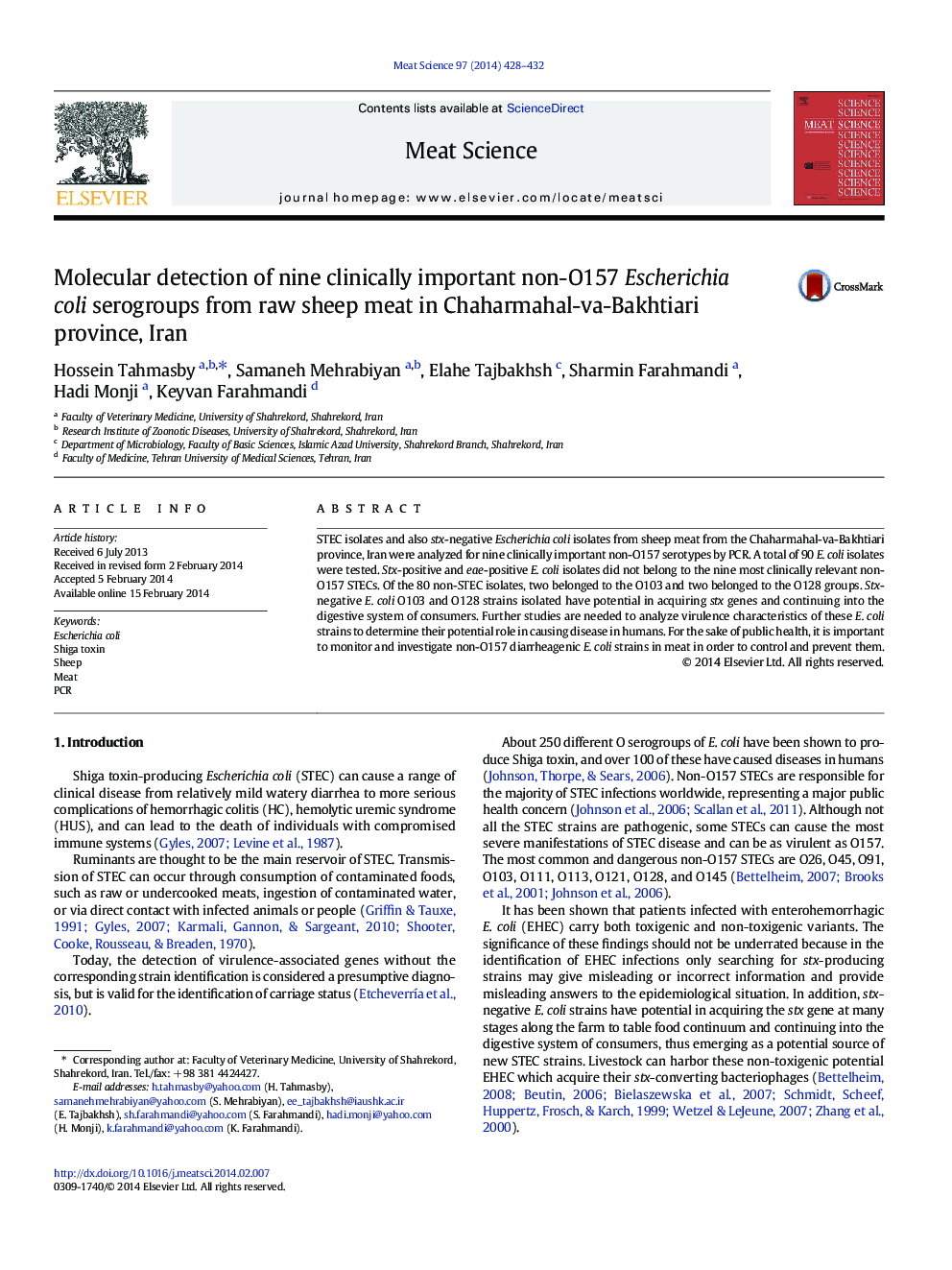| Article ID | Journal | Published Year | Pages | File Type |
|---|---|---|---|---|
| 5791639 | Meat Science | 2014 | 5 Pages |
â¢Both stx-positive and stx-negative E. coli isolates were isolated.â¢STEC isolates did not belong to the nine clinically important non-O157 serogroups.â¢Of the 80 non-STEC isolates, two belonged to the O103 and two belonged to the O128 groups.
STEC isolates and also stx-negative Escherichia coli isolates from sheep meat from the Chaharmahal-va-Bakhtiari province, Iran were analyzed for nine clinically important non-O157 serotypes by PCR. A total of 90 E. coli isolates were tested. Stx-positive and eae-positive E. coli isolates did not belong to the nine most clinically relevant non-O157 STECs. Of the 80 non-STEC isolates, two belonged to the O103 and two belonged to the O128 groups. Stx-negative E. coli O103 and O128 strains isolated have potential in acquiring stx genes and continuing into the digestive system of consumers. Further studies are needed to analyze virulence characteristics of these E. coli strains to determine their potential role in causing disease in humans. For the sake of public health, it is important to monitor and investigate non-O157 diarrheagenic E. coli strains in meat in order to control and prevent them.
